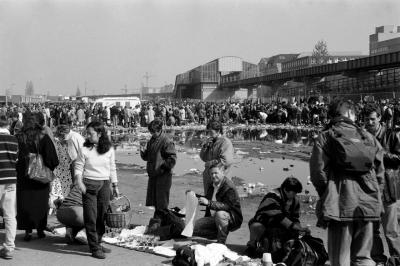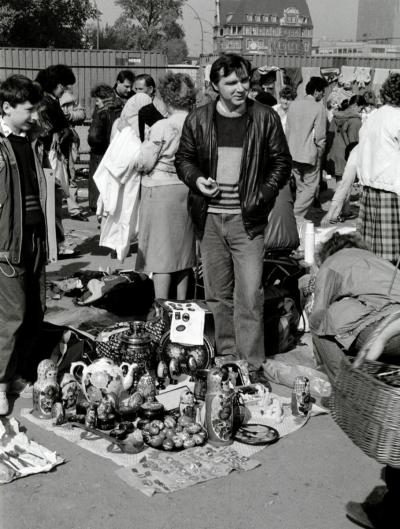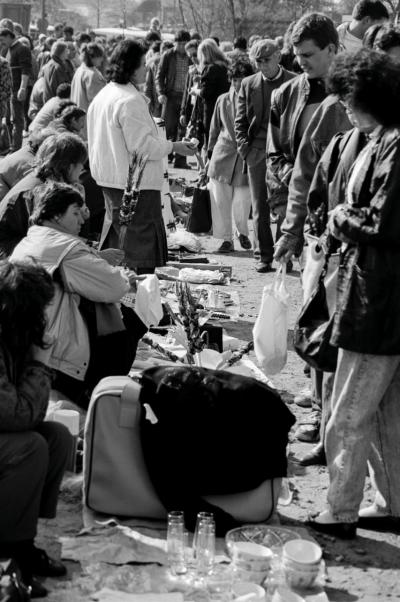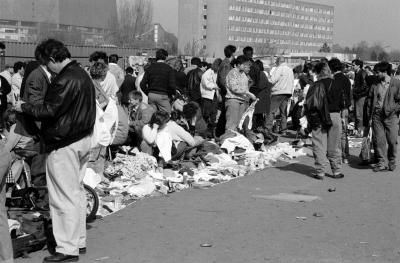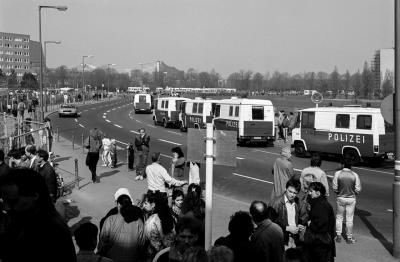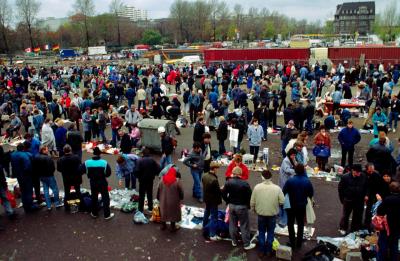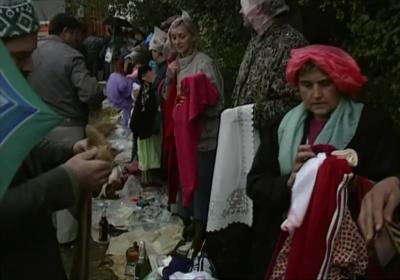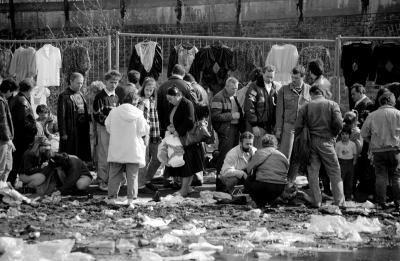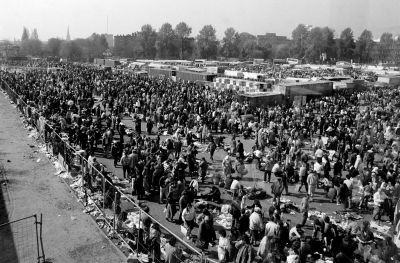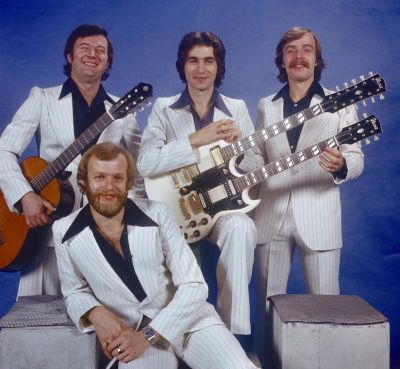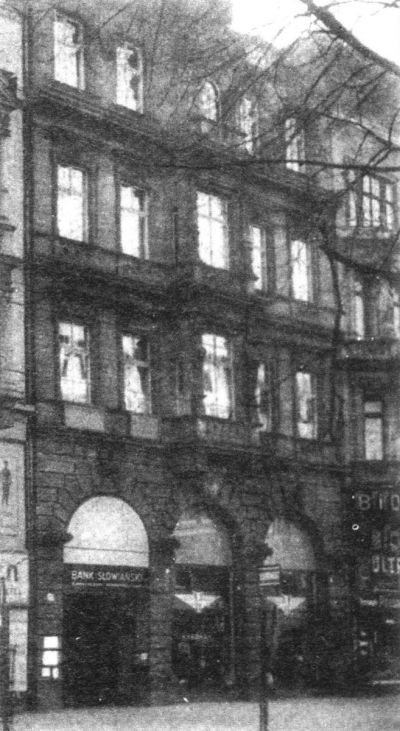The "Polenmarkt" at Potsdamer Platz in Berlin

The onslaught of the Poles, who made their pilgrimage to Kantstrasse after finishing work in the Polish market, also left a detrimental mark on the area. In 1990, "Der Spiegel" described what was happening there as follows:"Because bulky packaging cartons are only a disturbance during transport, they are abandoned on the spot - in parking spaces on the road or in the nearest hallway. Empty beer cans and broken soda bottles, paper cups and hamburger boxes collect in the gutter. And since travellers have been on the road for hours, they are forced to answer urgent calls of nature."[5]
Local residents, who developed an increasing aversion to Polish traders, received support from politicians. In 1987, Ulf Fink, the then Senator for Health and Social Affairs in Berlin, still believed that West Berlin should be interested in Polish immigrants for economic and demographic reasons. Only two years later, however, politicians noted that "the boat was full", and that Berlin's difficult situation on the housing market would only be exacerbated by the further influx of repatriates from the Soviet Union.[6]
In order to subdue the onslaught of "Polish trading tourists", as the phenomenon was often described in the press, the West Berlin Senate called on the Federal Government to relax the entry regulations into Germany and create an "immigration union" stretching from Frankfurt an der Oder to Aachen. The aim was to ensure that travellers from Poland also visited other German cities. In this respect, the Polish market was a constant source of discussion in the meetings of the Berlin Senate. At the same time, increasingly harsher letters were being sent to Warsaw begging the authorities to stop the mass travel of Poles for commercial purposes.
By the end of 1990, the Polish market had finally disintegrated spontaneously. As a result of the reforms introduced by Leszek Balcerowicz, the prices of goods sold in Poland rose sharply, while journeys to Berlin and the price of petrol became more expensive. At the same time, the value of the Deutschmark fell so sharply that trading was no longer profitable. As a result, the Polish market had a brief revival in 1992, but never again reached its former dimensions. Today, Potsdamer Platz, packed with glossy office buildings, is also a place of commerce. With the establishment of the more-or-less exclusive shops, Poles have also returned, but this time as customers.
Monika Stefanek, December 2017
[5] “Arme Teufel”: Der Spiegel, 17/1990, p. 105.
[6] Blog by Uwe Rada, Von Danzig bis Berlin, at: www.uwe-rada.de
